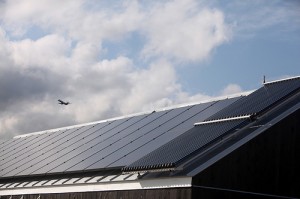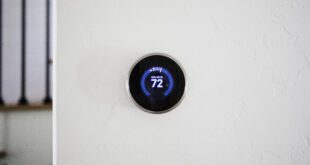A Case for Energy Efficiency Rebate Program
by Katia Lundy, Sr. Marketing Specialist, Member of the Con Edison Green Team
 If you think it’s hard trying to get a loan from a bank or selling real estate in this economy, try “selling” money. Well, not actually selling money but giving generous rebates and incentives for energy efficiency projects. The sales process is not any easier even when the “product” is cash-back, moolah, money! In these tough economic times, businesses from all levels have pulled back and have become extremely guarded with how they spend their dollars. Accordingly, based on various energy efficiency polls, although public sentiments are aligned with the idea of energy conservation to reduce carbon emissions and to help the environment, many businesses do not plan to implement energy efficiency upgrades because, they can’t afford it.
If you think it’s hard trying to get a loan from a bank or selling real estate in this economy, try “selling” money. Well, not actually selling money but giving generous rebates and incentives for energy efficiency projects. The sales process is not any easier even when the “product” is cash-back, moolah, money! In these tough economic times, businesses from all levels have pulled back and have become extremely guarded with how they spend their dollars. Accordingly, based on various energy efficiency polls, although public sentiments are aligned with the idea of energy conservation to reduce carbon emissions and to help the environment, many businesses do not plan to implement energy efficiency upgrades because, they can’t afford it.
When the purse strings are tightened, how can the message get across that investing in energy efficiency today only benefits participants in the long haul? “People naturally think there is a catch but the catch is…there is no catch. Owners and managers of large office buildings, medium size retail outlets or any other commercial and industrial facilities interested in improving operations, reducing maintenance costs, lowering energy bills and procuring a more sustainable future, can greatly benefit from an energy efficiency rebate program” said David Pospisil, program manager for the Con Edison Commercial & Industrial Energy Efficiency Program.
Many building owners do want to be energy efficient but are very skeptical about “free money” campaigns. And besides, they can’t spare the upfront cost for major upgrades or to replace older equipment at this juncture is a reoccurring sentiment.
The truth of the matter is, under state regulation, many public and municipal utilities are now required to spend money to help businesses reduce energy consumption. Actually reducing energy output may in fact help the utilities save money by preventing future investments in new facilities and or utility infrastructure. Also, although the upfront cost may be more for these energy efficient upgrades, the investment can offset this in energy savings and lower monthly utility bills. Utility incentives can often make a big difference in one’s bottom line.
Why is Energy Efficiency important in the commercial and industrial sector? Energy is such an integral part of our lives that we often use it without thinking. Being energy efficient means using energy wisely; doing the same amount of work while using less energy. The more efficient we are about energy usage, the less we’ll have to spend and the more environmentally sound we’ll be.
As it stands now, electricity and natural gas account for more than 87% of total energy consumed in the commercial building sector according to the U.S. Energy Information Administration. Making these buildings more energy efficient makes good business sense. And besides, energy costs are the most controllable of a facility’s operating expense.
Because commercial office buildings consume a majority of all energy used, energy efficiency managers target energy efficiency measures with the greatest savings potential. In office buildings, the equipment includes high-efficiency replacement motors, variable frequency drives (VFDs), lighting and controls for heating and cooling equipment. The program also offers a custom program that embraces innovative measures not listed in the equipment rebate program. These may include chiller and/or refrigeration upgrades, industrial process improvements and or compressed air system improvements.
For businesses that do not have an energy management policy in place, now is the perfect time while money is readily available from utilities, federal and local governments for energy audits, equipment retrofit, installations and upgrades. Having an energy management plan in place can help:
• mitigate energy price volatility
• achieve operational cost savings
• improve environmental comfort and building performance
• positively impact net operating margins
Other benefits that may not be on top of the list but are important none-the-less include the psychological benefits. A study by U.S. Department of Energy, Greening the Building and the Bottom Line, found within high performing buildings, productivity rises by as much as 16% due to the office being quieter, more comfortable and with better air and lighting.
It makes perfect sense for businesses to get involved now while rebates are being offered for energy efficiency upgrades as they can be applied back to the operation. “Free money” doesn’t come around that often.
To get your piece of the pie and to learn more about Con Edison’s C&I Energy Efficiency Program, visit www.conEd.com/energysavings or call an energy efficiency representative at 1-877-797-6347. Since the launch of the Con Edison Energy Efficiency C&I Program, the Con Edison Green team has helped many commercial and industrial customers, including office buildings, restaurants, hotels, banks hospitals, and residential apartment buildings, among others, earn valuable cash incentives and saved an estimated 114 million kWh of energy, which equates to enough power to serve approximately 6,400 households per year.
 Alternative Energy HQ solar power for homes, wind energy, and bio fuel issues
Alternative Energy HQ solar power for homes, wind energy, and bio fuel issues







